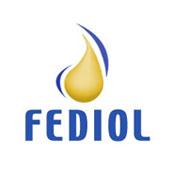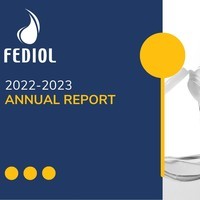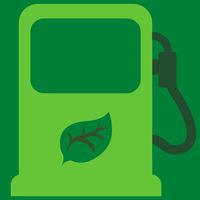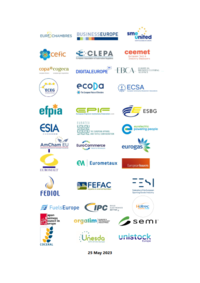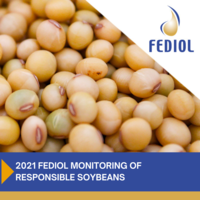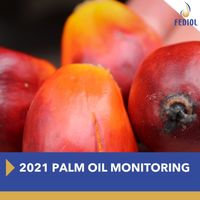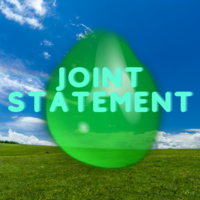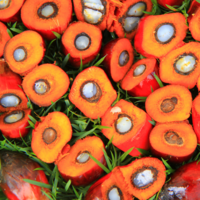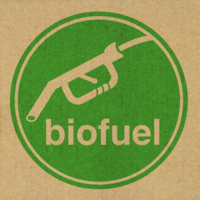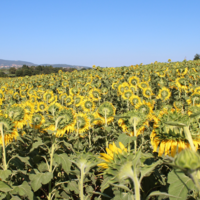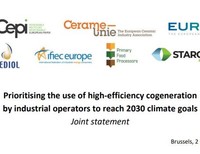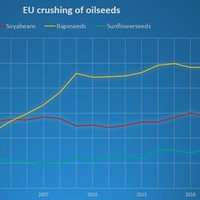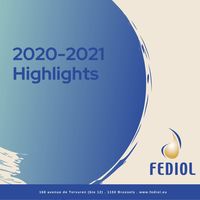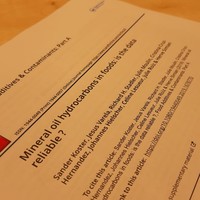COCERAL, FEDIOL, and FEFAC endorse adoption in Plenary of the CSDDD compromise agreement 24/04/2024
COCERAL, FEDIOL, and FEFAC, representing the EU grain and oilseed trade, the industry crushing oilseeds, refining vegetable oils and the animal feed industry, endorse the political agreement reached on the CSDDD and therefore welcome its adoption today by the European Parliament. We now look to the Council to formally endorse the agreement.
The compromise text is much closer to the international frameworks on due diligence, such as the OECD and UN guidelines, which will allow companies to prioritise addressing adverse impacts where the risks are most likely and severe and therefore require urgent attention. This targeted approach will help deliver the most impact.
Furthermore, the recognition of independent third-party verification, including by industry or multi-stakeholder initiatives, to support the implementation of due diligence obligations will facilitate compliance through their expertise and long-standing experience. Such multi-stakeholder initiatives can also increase the leverage of companies to address impacts through collective effort.
In view of the expected final adoption and entry into force of the CSDDD, companies will need to start preparing to implement the obligations of the Directive. To ensure successful and timely compliance, we count on the Commission to provide practical and easy-to-understand guidance and best practices well ahead of the date of application, namely on how to conduct due diligence, including on prioritisation of impacts, appropriate measures to adapt purchasing practices, information on responsible disengagement, appropriate measures for remediation, and on how to identify and engage with stakeholders. Given the specificities of bulk agricultural supply chains, we also urge the Commission to issue agriculture-specific guidance.
Member States should ensure there is no duplication of obligations with other EU legislation covering due diligence obligations or complementing the CSDDD, such as the Forced Labour Regulation, to prevent unnecessary burden and resulting loss of EU competitiveness. Appropriate due diligence measures under the CSDDD should also be considered as such in the Forced Labour Regulation, while guidelines issued under both legislations should not contradict each other.
Our companies look forward to constructive cooperation with the Commission, Member State supervisory authorities, other companies, as well as other stakeholders to ensure that risks in our supply chains are duly identified and properly addressed and to promote an increasingly sustainable EU economy over time.
Download the full press release here.
FEDIOL call for strong cooperation with producing countries and stakeholders to end forced labour globally 23/04/2024
The European Parliament has approved a milestone Regulation to eliminate forced labour from EU supply chains. To take a step further and ambition to end all forced labour risks, FEDIOL urges the Commission and Member States to work jointly with companies on identifying and eliminating risks, and crucially, to engage in meaningful and structured cooperation with governments of producing countries to tackle the roots of forced labour.
The provisional agreement on the Forced Labour Regulation provides a good framework for constructive cooperation between competent authorities and companies in the preliminary investigation and investigation phases, so we call on the Commission and Member States to take on a collaborative approach and to support companies’ efforts to identify and eliminate forced labour risks in their supply chains.
FEDIOL strongly supports the EU and Member States collaborating with third countries to prevent economic operators from disengaging in high-risk areas and to support tackling the root causes of forced labour. While the provisional agreement does not make this mandatory for the Commission and Member States, it is crucial that they be proactive, as no lasting or meaningful improvements can be achieved without their involvement. Structured partnerships with producing countries with forced labour risks will ensure that economic operators can operate with confidence, knowing that the underlying root causes triggering instances of forced labour in supply chains are being addressed. Without such assurance, economic operators may withdraw from a region, jeopardising the effectiveness of the collaboration and failing to create lasting changes in working conditions.
We welcome the creation of the Union Network Against Forced Labour Products to ensure harmonised enforcement and implementation of the Regulation. The Network should specifically ensure that sanctions in case of non-compliance are uniform across all EU Member States, promote uniform risk-based approaches and administrative practices, and contribute to the development of guidelines by the European Commission. Overall, the processes and approaches should be both legally clear and coherent for economic operators as well as equal across Member States and the Commission.
Regarding the issuance of guidelines by the European Commission, it is imperative that the latter consults supply chain and forced labour risk experts for the development of practical and realistic solutions and best practices. Furthermore, the guidelines should be available to economic operators and competent authorities at least 1 year before entry into application, without delay, as experience with other EU legislation has shown the very damaging impact of not providing legal clarity sufficiently ahead of time. Aspects of the guidelines that should require thorough attention and clarification include guidance for operators with a focus on sector specificities (agriculture in our case), guidelines on the applicable standard of evidence, and guidance for economic operators and product suppliers on how to engage in dialogue with competent authorities, in particular on the type of information to be submitted. As stated in the provisional agreement, we emphasise that the guidelines should be consistent with guidelines provided in accordance with other relevant Union law.
The implementation of the Forced Labour Regulation should avoid duplication and redundancies with other EU legislation, including the Corporate Sustainability Due Diligence Directive. While the EU takes the lead on environmental, social, and governance ambitions, it should ensure that its companies can contribute to these goals without unnecessary loss of competitiveness. Avoiding duplication and overlaps is an essential means to avert this.
Overall, FEDIOL endorses the compromise reached between the co-legislators and now look to the Commission and Member States to effectively cooperate with companies and producing countries with the aim of not only eliminating forced labour from EU supply chains but creating the right governance conditions for ending forced labour globally.
Download the press release here.
EU cross sector coalition call to EU Commission and Member States for EUDR clarifications and workable EUDR implementation 28/03/2024
As part of their commitment to support a successful implementation of the EUDR, considering the significant adjustments that are needed from suppliers, operators and traders, 23 EU organisations co-signed a joint call to express serious concerns regarding the pace of preparation of EUDR-related legislative acts, the mandatory systems (i.e. Information System), and the guidance and clarifications required for implementation by operators and traders and enforcement by competent authorities.
Operators and traders are working hard to prepare their supply chains and adapt their systems and due diligence processes for compliance with the EUDR. They try to develop workable solutions, compatible with the EUDR provisions, but implying less administrative burden. However, these efforts are impeded by large gaps in information, lack of appropriate technical solutions and by misconceptions as to the functioning of their complex chains.
Read the full coalition call here.
FEDIOL releases CO2 emissions monitoring for the period 2019-2022 11/03/2024
In 2023, FEDIOL set up a programme to monitor the CO2 emissions of its members’ manufacturing sites. This initiative has the objective to inform member companies of their relative performance and to facilitate the achievement of climate goals which is relevant under the FEDIOL commitment to the EU Code of Conduct on responsible food business and marketing practices and, more specifically, to aspirational objective #3: A climate neutral food chain in Europe by 2050.
More than 40 crushing and/or refining sites submitted data under this programme, representing 31 million tons of oilseed processed and 7.2 million tons of crude vegetable oil refined. Around 15 stand-alone refining/further processing sites submitted data, representing 3.5 million tons of crude oils refined plus 1.2 milion tons of refined oils further processed.
The results show a decline in aggregated CO2 emissions of participating FEDIOL companies over the period of four years of 9.5%.
The results also show a reduction in CO2 emissions per ton of raw material processed between 6 and 7% for both groups of activities, i.e. integrated crushing/refining and stand-alone refining/further processing of oils.
For more detailed information follow FEDIOL Code of Conduct page, workstream 4. Reduction of GHG emissions.
Registration is now open for the Sustainable Palm Oil Dialogue (SPOD) 2024 26/02/2024

This year FEDIOL co-organises with APAG, IDH and RSPO the Sustainable Palm Oil Dialogue (SPOD) 2024 which will be held on Wednesday, 22 May in Brussels, with the theme ‘Inclusive Pathways for Climate-smart Solutions’.
Climate change is the challenge of our time. With the “agriculture, forestry and other land uses” sector accounting for 13-21% of global emissions, there is mounting pressure to address this issue through sustainable production and supply chains. In Europe, this has led to both regulatory and non-regulatory initiatives to reduce emissions, such as mandatory reporting Scope 1 and 2 emissions.
Against this backdrop, SPOD 2024 will look at how innovative voluntary and mandatory initiatives can support emissions’ reduction in the palm oil supply chain. As well as how these initiatives can respect the position of smaller actors in the palm oil supply chains (including smallholder farmers), to ensure they are not left behind in the journey towards more sustainable agricultural practices.
Registration for the event is now open.
The programme will be updated on the SPOD 2024 website in due course.
Deadline for registration: 10 May 2024
Joint press release following EP Plenary vote on NGTs Proposal 09/02/2024
On 7 February, the European Parliament Plenary adopted its position on a regulation on plants obtained by certain new genomic techniques and their food and feed (COM(2023) 411). COCERAL, FEDIOL and FEFAC remain committed to further scrutinizing the draft and supporting the legislative process, once the full text will be public.
While the vote goes in the right direction, recognizing the need for a new regulation on NGTs, there are still areas in which the text must be improved, if the European Union intends to give the farming community New Genomic Techniques as a new tool to address climate change impact and the sustainability goals of the Green Deal.
In particular, this is true for the same compulsory labelling for all NGT products, undermining the very essence of a distinction between Category 1 (conventional-like) NGTs and other NGTs to be treated like GMOs. This aspect could represent a relevant obstacle to the adoption of the technology and to the clarity of the information passed onto the citizens and consumers. Furthermore, mandatory labelling (“New Genomic Techniques”) would stigmatize Category 1 NGT products, although EFSA has -on multiple occasions-, declared that Category 1 NGTs do not pose additional risks to those of varieties obtained through conventional breeding methods.
A regulatory framework that is easy to implement with clear-cut criteria to determine the application or exclusion of GMO considerations, with a set of rules applicable throughout the Single Market, will facilitate the circulation and processing of food and feed materials. This, in turn, will contribute significantly to enhancing the competitiveness of both the industry and the farming sector within the EU.
Full press release available here.
FEDIOL releases the 2022 monitoring of responsible soybeans 14/11/2023
In 2022, 35% of the soybeans sourced and processed by FEDIOL member companies was verified or certified responsible. The amount of the derived soy products, that companies were able to sell as responsible in Europe, increased by 2 percentage points, from the 7% of 2021 to 9%. Despite this slight increase, the 26% points gap continues to substantiate the difficulty for FEDIOL companies to sell, as verified or certified responsible, the full amount of soybeans they purchase with a sustainability premium.
The exercise measured the volumes of soybeans bought and the derived products sold that were compliant with the 2021 upgraded FEFAC Soy Sourcing Guidelines (SSGs).
FEDIOL companies purchased 13,862,000 tons of soybeans, a slight decrease with respect to the 2020 and 2021 figures.
In the second part of the monitoring, FEDIOL also assessed the geographical sourcing of soybeans from its member companies and the collection of their aggregated volumes of soybeans processed in the EU. Soybeans can be sourced from areas where the risk of deforestation is higher or rather lower.
In 2022, FEDIOL companies sourced 96% of the soybeans they processed from regions with a low risk of deforestation, an increase of 17 percentage points over 2021, while only 4% from high-risk regions.
The monitoring does not provide an indication about volumes that will be able to comply with the EU Deforestation Regulation when entering into application at the end of 2024.
The FEDIOL 2022 monitoring can be found here.
- (14/11/2023 - 0 KB)
2022 FEDIOL monitoring of certified sustainable palm oil used in the EU 13/11/2023
FEDIOL's monitoring of the certified sustainable palm oil used in Europe in 2022 shows a result of 64%, a decrease of 1% point compared to 2021, while the absolute share of certified sustainable palm kernel oil stands at 45%. For palm kernel oil this represents a loss of 2% points vs previous year.
FEDIOL carries out an annual monitoring of the volumes of crude palm oil and palm kernel oil entering the EU refining plants of FEDIOL member companies that participate in the survey.
In 2022, FEDIOL members refined a total volume of 3.03 million tons of palm oil. This represents a drop of -7.4% from the 2021 volumes and implies a continuation of the downwards trend registered since 2017. Similarly, total certified sustainable palm oil volumes reached 1.9 million tons and decreased by -0.5 points compared to 2021 resisting the downwards trend of the past few years. The majority of this certified sustainable palm oil was traded under segregated chain of custody, while mass balance continued a steady decrease.
Concerning palm kernel oil, the monitoring figures show that the total palm kernel oil refined by FEDIOL members in 2022 amounted to 343.000 tons, a slight -1% drop from 2021, while total certified sustainable palm kernel oil volumes faced a more sizable decrease of 5% over the same period.
Traceability up to the mills where palm fruits are processed, for both palm oil and palm kernel oil, remains high reaching 98% and 100% respectively.
The monitoring leaflet can be found on the FEDIOL website.
FEDIOL press release following the vote in the IMCO and INTA committees on the Forced Labour Regulation 17/10/2023
Following the vote in the IMCO and INTA committees on the Forced Labour Regulation, FEDIOL welcomes various improvements to the Commission’s Proposal and calls for further work on other critical elements.
FEDIOL particularly welcomes that the Commission’s proposed mechanism under which competent authorities should bear the burden of proving that products have been made with forced labour, has been largely maintained, excluding cases where forced labour is imposed by state authorities. Overall, maintaining the burden of proof in line with the European Commission's proposal will create a favourable context for all stakeholders to actively identify and address forced labour risks while adhering to well-established due process.
Furthermore, FEDIOL appreciates the extension of deadlines for companies to respond to requests for information, which could promote a meaningful dialogue between the competent authorities and the companies with the aim of providing the necessary documents. For companies sourcing globally, with suppliers located in different countries, and taking into account the different time zones, 30 days is more appropriate to enable a more detailed response from the companies.
Another crucial improvement is the strengthening of provisions on engagement and collaboration with third countries to eradicate forced labour, particularly the addition of Commission and Member State cooperation and partnership mechanisms with third countries to address the root causes of forced labour, prevent and eliminate practices of forced labour, and build the capacity of upstream economic actors to respond to the requirements under this Regulation. Such action is necessary to ensure that relevant human rights legislation is effectively enforced by governments but also to eliminate the conditions that allow forced labour to persist. We therefore count on the Council to fully endorse this approach.
Regrettably, the regulation still lacks clear and specific evidentiary standards. FEDIOL believes that setting precise standards is crucial for ensuring fair and transparent processes. The regulation, among other things, should clarify what is expected from companies in terms of providing the necessary documentation from the moment the investigative process starts. Precise documentation ensures legal certainty. Additionally, the legislators should take into significant consideration that certain sectors, such as agriculture, have many specificities and, therefore, will require specific guidelines, which are currently lacking.
Overall, FEDIOL believes that positive work has been achieved in the European Parliament to improve the proposed Forced Labour Regulation. However, there is still significant room for improvement with respect to the key issues mentioned above.
Download the press release here.
FEDIOL Reaction to the EP vote on the Renewable Energy Directive III 13/09/2023
FEDIOL reiterates its support to the provisional agreement, which recognises the role of crop-based biofuels in meeting the EU’s transport renewable energy target and increases the EU’s overall ambition to boost renewable energy sources.
The European Parliament’s approval of the agreement reached between the co-legislators on the revision of the Renewable Energy Directive (RED III) confirms the complementary and needed role of crop-based biofuels in contributing to the EU’s transport renewable energy mix, a satisfactory outcome which Member States should make use of to meet their targets and support farmers’ incomes.
Download the press statement here
FEDIOL Statement on the release of the EFSA opinion on Mineral Oil Hydrocarbons 13/09/2023
The European Food Safety Authority (EFSA) released today its updated opinion on the Mineral Oil Hydrocarbons (MOH) in food. FEDIOL, the EU Vegetable Oil and Proteinmeal Industry association, carefully takes note of the EFSA experts’ conclusions.
FEDIOL supports science-based approaches for risk assessment and has hence been committed to collaborate and support the authorities in that direction, notably with the submission of its analytical data to EFSA.
The contamination of foods with mineral oil hydrocarbons (MOH) is a serious concern that has drawn the attention of the vegetable oil and fat industry for several years. As highlighted by EFSA, MOH can enter food in many ways: through environmental contamination, use of lubricants for machinery, release agents, processing aids, food or feed additives and migration from food contact materials. Our industry has therefore engaged in several actions as part of its food quality and safety commitment, including contribution to the development of analytical methods, identification of MOH contamination routes for its products, a FEDIOL Code of Practice, engagement with relevant stakeholder for raising awareness and research on how to prevent and/or reduce occurrence throughout the supply chain. The latest has been proven crucial in our efforts to achieve low MOH levels in our commodities.
FEDIOL remains committed to continuing addressing the MOH contamination issue and to engaging constructively in the upcoming discussion for an EU legislation.
Download the full statement here
FEDIOL publishes its 2023 annual report 13/07/2023
Learn more about our priorities and accomplishments over the past year here
Joint COCERAL and FEDIOL Statement on the Official Proposal on New Genomic Techniques 05/07/2023
COCERAL and FEDIOL welcome the Official Proposal on New Genomic Techniques, as released by the European Commission today. This legislation represents a fundamental milestone of the Commission’s activity under the current mandate, to deliver green solutions beneficial for our society at large, through breeding tools which are faster and more precise.
The proposal reflects a fair balance between reaping the benefits from plant breeding innovation, while maintaining a high protection of human and animal health and of the environment, which represents a move in the right direction.
In addition, the legislation is poised to introduce features of a future-proof approach to policy-making, under the ambitions of the Farm to Fork and Green Deal. It is hence expected to help match the needs of contemporary food chains, as a tool with potential to support the farmers and the food business operators as a whole. The dramatic challenges coming from climate change, geopolitical instability and supply chain disruptions call (in parallel) for a transition to more sustainable agriculture and food systems, which need compatible and coherent technologies. In that regard, New Genomic Techniques may have a role in helping address the needs of food security and resilience of our food systems.
Our associations praise the point of clarity about conventional-like varieties that could be obtained through NGTs, through a simplified notification approach which is in line with the scientific findings of EFSA, and able to speed up the launch on the market of new plant varieties. In addition, we believe it is fair to maintain a separate “Category 2” for varieties obtained through techniques which are not conventional-like and could otherwise cause acceptance problems if not properly managed.
COCERAL and FEDIOL will continue to work responsibly with the institutions to improve the clarity and effectiveness of the proposal and make it workable both in the internal EU market, as well as in globally interconnected supply chains which know no boundaries.
Full press release also available here
FEDIOL press statement following the ITRE vote on the Renewable Energy Directive III 28/06/2023
Brussels, 28 June 2023 – FEDIOL applauds the decision to recognise the role of crop-based biofuels in meeting the EU’s transport renewable energy target.
Following the ITRE committee’s approval of the agreement reached between the co-legislators on the revision of the Renewable Energy Directive (RED III), FEDIOL is satisfied that the agreement acknowledges the complementary and needed role of crop-based biofuels in contributing to the EU’s transport renewable energy mix. Crop-based biofuels are an immediate and cost-effective tool to reduce emissions in the transport sector and will help reduce the EU’s dependence on fossil fuel imports as well as support the EU’s energy security. We encourage Member States to make the most of the benefits of sustainably produced crop-based biofuels, which also play an important part in supporting agriculture and farmers’ incomes.
Furthermore, the higher ambition for the transport sector, with the target of 14.5% GHG intensity reduction or 29% renewable energy consumption, will allow sustainable renewable energy sources to step up their contribution to the EU’s energy mix and therefore support the achievement of the EU’s climate goals.
FEDIOL also welcomes the decision to reinstate the possibility for farmers to use NUTS II values to calculate their GHG emission reductions, which will spare small and medium–size farms the additional and disproportionate administrative burden that individual farm-based calculations would have represented. To make this provision meaningful, we urge the Member States and the Commission to proactively ensure that such values are submitted and approved under RED III.
Overall, the reviewed Directive sends a positive signal for accelerating the decarbonisation of the transport sector and delivers this under a stable and reliable framework. FEDIOL therefore calls on the European Parliament and Council to endorse this satisfactory agreement.
Download available here
Looking much beyond enhanced energy efficiency to driving decarbonization in vegetable oil production 02/06/2023
Brussels, 2 June 2023 – On the occasion of FEDIOL’s annual conference, dedicated to Innovation and Decarbonisation, members and stakeholders discussed tools to reduce greenhouse gas emissions. The food system being responsible for a significant share of the total GHG emissions, decarbonisation is imperative and the industry crushing oilseeds and refining vegetable oils is tackling emissions from its own activities (scope 1 and 2).
“Although, we may not be at the centre of attention in the debate on energy and carbon, our production processes are energy intensive and require large volumes of heat and electricity”, explained Jordi Costa, the President of FEDIOL and he went on saying: “Companies in our sector for more than ten years have already made efforts to decarbonize their activities through investments in enhanced energy efficiency and through enhanced use of biomass that becomes available as side stream during the processing of our raw materials.” Whereas it may still be possible to improve energy performance, significant reductions of CO2 emissions will require access to renewable electricity and heat allowing to reach temperatures up to 250° C.
Manufacturing of vegetable oils is vital for EUs food security and for the safety of the food and feed that is produced. The products, oils and proteinmeals are essential nutrients that will continue being relevant components for human and animal nutrition.
At sector-level, within our association, there is value added in enhancing collective intelligence and sharing experience or best practices. The sector-wide monitoring carried out with FEDIOL member companies about their GHG emissions over the period 2019-2022, delivered data, which will serve as a starting for future efforts. Achieving emission reductions is work in progress.
The industry also discussed addressing scope 3 emissions, in particular those of arable farming. The panel discussion on this gave insights into best practices to improve carbon farming, but also the challenges faced by farmers who are keen to have a broader approach, in which the co-benefits of carbon storage in the soil (biodiversity, water,…) can be considered as strategic as carbon.
Download the press release here
EU Grain and Oilseeds Sector React to European Parliament Vote on Corporate Sustainability Due Diligence Directive 01/06/2023
COCERAL, FEDIOL, and FEFAC, representing the EU grain and oilseed trade, the industry crushing oilseeds, refining vegetable oils and the animal feed industry, approve the European Parliament’s push for stronger alignment of the CSDDD with the principles and language of UN and OECD due diligence guidelines. However, other elements may be detrimental to trade and supply chains without added value to addressing harmful human rights and environmental impacts.
The strengthened risk-based approach and introduction of prioritisation of adverse impacts based on their severity and likelihood is crucial to ensure that companies’ efforts are targeted where they are most needed and can deliver the most impact. The risk-based approach is also more in alignment with the existing international frameworks on due diligence guidelines, which are built on best practices.
The provisions on civil liability offer greater legal certainty to companies and legal fairness by limiting it to situations in which a company has “caused” or “contributed to a harm”.
We equally endorse the European Parliament’s inclusion of the obligation to develop sector-specific guidelines for agriculture, group-level due diligence, ensuring harmonisation at EU level, and the introduction of minimum standards for independent third-party verification via a delegated act.
However, we regret the inclusion of suspension of products from free circulation or export among the sanctions to be imposed by Member States, as this disruption to trade and supply chains will not contribute to improvements in due diligence.
We now call on the European Parliament and Council to work towards a final text that is truly consistent with a risk-based approach, in line with UN/OECD best practice; enhances harmonisation to ensure a level playing field and avoid further internal market fragmentation; and bases civil liability provisions on legal traditions around breach-damage-causality. We stand ready to contribute to the dialogue during the trilogue negotiations.
Full press release also available here
Joint Business statement on the Corporate Sustainability Due Diligence Directive 26/05/2023
European business remains supportive of the objectives of the proposed directive on corporate sustainability due diligence (CS3D) and we urge co-legislators to work on a reasonable approach that is manageable for companies in practice. The European economy, including SMEs which will be impacted even if formally out of the scope, need a workable due diligence framework that is drafted in a balanced and proportionate way. There should be no room for legal uncertainty and fragmentation which will hamper the possibility for European companies, already facing a legally complex and crisis abundant environment, to contribute to the sustainability transition. We would therefore like to ask for number of key recommendations and concerns to be taken into account for the next stages of the legislative process:
1. We strongly call for full harmonisation to ensure a level playing field and avoid further internal market fragmentation. This is also in the spirit of the 30th Anniversary of the Internal Market. Divergent national legal regimes on due diligence would not only be costly and burdensome for companies of all sizes but, more importantly, risk undermining the achievement of the goals of the legislation in an efficient and effective manner.
2. To ensure that the future Directive is truly consistent with a risk-based approach, widely supported in international instruments in the UN and OECD, companies cannot be expected to focus on every single element of their value chains. The ability to prioritise the identification of and action to address the most salient risks is a necessity that must have a crucial impact on compliance with the due diligence process and its consequences. More prominence to industry and multi-stakeholder schemes is needed to help companies better comply with the new rules.
3. Legal liability provisions, including sanctions, need to be balanced, follow legal traditions around breach-damage-causality and truly incorporate the widely accepted principle that due diligence is first and foremost an obligation of means. The complexity of value chains cannot be underestimated when analysing impacts which can have multiple competing causes, players and dynamics. Therefore, companies cannot be made liable for damages they have not -intentionally or negligently - caused.
4. We acknowledge that, where relevant, due diligence requires engagement from relevant stakeholders in order to be effective. However, this should not mean creating wide open litigation powers to any entity to bring claims to court which could give rise to mass abusive litigation, ultimately depriving victims of harmful impacts to bring themselves claims to courts or mandate a representative (of their choice) to act on their behalf.
5. Legal clarity is paramount for the success of this initiative. This implies, for example, that definitions are robust and in line with what is used at international level (UN/OECD) and that provisions around climate objectives match with the recent Corporate Sustainability Reporting Directive (CSRD). Also, we call for revisiting and shortening the 2 annex to only include those conventions and treaties that create concrete obligations on companies so not to mix up their roles with the one of states. Timely guidance will be necessary on the new rules to avoid additional complexity both for the companies to secure compliance with a multi-layer set of rules, and for competent authorities to assess compliance with an over-prescriptive framework.
6. Regulating directors’ duties does not belong in a due diligence framework. It will have negative side-effects, including the disruption of existing, well-established governance models of the member states, without added value to the ability of companies to apply effective due diligence.
Full document also available here.
Rapeseed markets under abnormal pressure from waste biodiesel 25/05/2023
Brussels, 25 May 2023 – FEDIOL, the vegetable oil and protein meal industry, draws attention to acute market developments due to massive increases of imported biodiesel which lead to devastating consequences for the Europe based feedstock up to EU farm level.
Imports of biofuels, classified as waste based, for example identified as HVO (hydro-treated vegetable oil) or FAME (fatty acid methyl esters) are taking place at such scale, that it has led to important disturbances in the EU markets for rapeseed methyl ester, and as a consequence also in the rapeseed and rapeseed oil markets.
Over the last 5 months, prices for rapeseed oil have dropped significantly by over 30 % to 800 €/ton, driving down physical rapeseed prices for spot delivery from 625 €/ton to 410 €/ton over the same period. Also, futures prices for new rapeseed crop, providing rapeseed farmers with a price indicator, have declined from about 600 € per ton early January 2023 to levels of about 400 € per ton by mid-May 2023. This will not only impact rapeseed farmers’ revenue, but also future planting decisions.
These trends cannot be explained by other market developments and are a signal that there is abnormal market behaviour. The magnitude of biodiesel imports’ growth is such that it raises question as to the authenticity of their classification as originating from waste streams. There is urgent need to investigate the legitimacy of these imports.
FEDIOL Statement on the EU Commission action to restore EU single market and trade policy 02/05/2023
FEDIOL acknowledges the accord in principle reached on EU exceptional safeguard measures to counter the unilateral decisions by the five frontline countries to ban Ukrainian agriculture imports. Read our full statement
FEDIOL position on draft Commission delegated Regulation on date marking 26/04/2023
FEDIOL position on date marking. Click here
COCERAL, FEDIOL, and FEFAC press release following CSDDD vote in JURI Committee 25/04/2023
COCERAL, FEDIOL, and FEFAC issued a press release following today's EP Legal Affairs Committee vote on Corporate Sustainability Due Diligence Directive. While they support the effort to improve consistency of the CSDDD with the principles and language of UN and OECD due diligence guidelines, they put in evidence that other elements may be detrimental to trade and supply chains without added value to addressing harmful human rights and environmental impacts.
Joint COCERAL, FEDIOL, FEFAC Statement following the EP Plenary vote on deforestation 19/04/2023
Following the formal approval of the Deforestation-free Commodities Regulation, COCERAL, FEDIOL, and FEFAC call on the European Commission and Member States to work with stakeholders to facilitate the implementation of the Regulation. Read the press statement
FEDIOL labelling recommendations on frying oils 22/03/2023
FEDIOL has signed the EU Code of Conduct for responsible business and marketing practices in June 2021. To implement the various aspirational objectives of the Code, FEDIOL has set up a Action Plan for Implementation of the Code and its content was shared in the annual report, to the Commission in April 2022. To contribute to aspirational objective one on Healthy, balanced, and sustainable diets for all European consumers, thereby contributing to: 1) Reversing malnutrition and diet-related non communicable diseases (NCDs) in the EU 2) Reducing the environmental footprint of food consumption by 2030, FEDIOL decided among others to develop a FEDIOL recommendation on the labelling of frying oils, which was finalised in March 2023 and is available here.
FEDIOL Statement on the release of the EFSA draft opinion on MOH for public consultation 20/03/2023
FEDIOL welcomes the public consultation on the draft scientific opinion on the update of the risk assessment of mineral oil hydrocarbons in food to which will contribute by submitting comments to EFSA. Read in full here
COCERAL, FEDIOL, and FEFAC call for strong EU country partnerships in the deforestation legislation to mitigate exclusion of smallholders 13/12/2022
The three signatories urge the Council and European Parliament to ensure mandatory structural engagement between the European Commission and Member States and producing countries in the final text of the EU Regulation on deforestation-free supply chains to mitigate the exclusionary impact of the Regulation on smallholders. Read the full press release here
FEDIOL launches the “Facts on vegetable oils” website 12/12/2022
Today, marks the launch of a new dedicated website focusing on vegetable oils and fats with the aim of outlining their health and nutritional aspects. Read the press release and visit the new website here
Joint COCERAL, FEDIOL, and FEFAC press release following the EP and Council deal on deforestation 06/12/2022
COCERAL, FEDIOL, and FEFAC published a press release in reaction to the provisional deal between European Parliament and Council on the EU Regulation for deforestation-free supply chains. Document available here
COCERAL FEDIOL FEFAC welcome the adoption of EU Council Corporate Sustainability Due Diligence Directive 02/12/2022
EU Grain and Oilseeds sector welcomes EU Council General Approach on Corporate Sustainability Due Diligence Directive.
Read the press release
EBB FEDIOL Position on RED III for Trilogues 28/11/2022
EBB-FEDIOL Recommendations for the trilogue negotiations on the Renewable Energy Directive III. Full document
Joint open letter on Sustainable Use of Plant Protection Products Regulation (SUR) 18/11/2022
Joint open letter from 17 agri-food chain organisations regarding the potential impact of the current proposal on Sustainable Use of Plant Protection Products Regulation (“SUR”) on the EU agricultural value chain, considering the current socioeconomic situation in Europe. Click here
FEDIOL releases the 2021 Responsible Soy Sourcing monitoring 03/11/2022
Today FEDIOL releases its monitoring of responsible soybean data collected in 2021 from participating member companies.
Read the Press Release
Find the Factsheet
FEDIOL releases the 2021 Sustainable Palm Oil monitoring 26/10/2022
The exercise monitors volumes of crude #PalmOil & #PalmKernelOil entering EU refining plants of our member companies participating in the survey.
Open letter to VP Timmermans and Commissioner Simson calling to Prioritise Efficient Power and Heat Production to Ensure Affordable, Secure and Clean Energy for all Europeans 11/10/2022
FEDIOL co-signed the cogeneration sector letter handed to the European Commission demanding concrete actions to increase EU energy efficiency ambition. Decarbonization, affordability and energy security heavily depend on energy efficiency. Read more
2021 2022 Annual Report 15/09/2022
FEDIOL publishes its annual report covering the period June 2021 - June 2022.
FEDIOL reaction to the European Parliament vote on the Renewable Energy Directive III 14/09/2022
FEDIOL welcomes the European Parliament’s decision to maintain the role of crop-based biofuels in meeting the EU’s transport renewable energy target. However, it regrets the EP approach on high ILUC feedstocks, which departs from the European Commission’s position and could lead to further instability on the EU energy market. Read more
Joint COCERAL, FEDIOL, FEFAC Reaction to the European Parliament vote on the Deforestation Regulation 13/09/2022
Following the EP’s plenary vote on the Deforestation Regulation, COCERAL, FEDIOL, and FEFAC regret that the outcome falls short of the ambition to tackle global deforestation and risks fuelling supply chain shortages and price inflation in the EU. Read more
Press Statement on Concerns over Cost and Availability of Gas and Electricity for EU Vegetable Oil and Meal production 08/09/2022
Ahead of the Extraordinary EU Energy Council meeting of 9 September 2022, FEDIOL voices its concerns over cost and availability of gas and electricity, calling on options to ease pressure to maintain domestic vegetable oil and meal production. Read full statement here
Joint statement from EU biofuels, food and feed chain partners on key REDIII vote in EU Parliament 15/07/2022
Joint statement from EU biofuels, food and feed chain partners – from harvesting to transformation for food, feed and energy uses – after the ITRE vote to preserve a key role for crop-based biofuels. Read more
FEDIOL Press Release in Reaction to European Parliament's Committee on Industry, Research and Energy vote on RED III 14/07/2022
FEDIOL welcomes maintenance of 7% cap for crop-based biofuels in RED III ITRE vote but rejects provisions that disadvantage crop-based biofuels. Our press release
Joint COCERAL, FEDIOL, FEFAC press statement on 12/7 ENVI vote on deforestation 13/07/2022
COCERAL, FEDIOL, and FEFAC Welcome Stronger EU Partnerships with Producing Countries in ENVI Report on EU Deforestation-free Commodities Regulation but Regret Traceability Provisions. Read the full press statement here
Reducing the share of crop based biodiesel would hamper food security protein production farmer income and climate action in the long run 08/07/2022
Read the joint FEDIOL and EBB statement here
COCERAL, FEDIOL, FEFAC reaction to Council General Approach on the Deforestation Regulation 29/06/2022
Following the adoption of the General Approach of the Council on the EC proposal on deforestation-free products at the 28/6 Environment Council meeting, COCERAL, FEDIOL, and FEFAC welcome certain elements like the Council’s move to avoid duplication of due diligence but are concerned that no significant changes have been put forward on traceability, cooperation with third countries, and chain of custody.
Press Statement available here
FEDIOL Press Statement on the Council General Approach on REDIII 29/06/2022
FEDIOL welcomes the Council’s decision to maintain the Commission’s approach on crop-based biofuels, which are an available and cost-effective means to decarbonise transport in the EU and reduce fossil fuel imports. Read more
FEDIOL Press release Encouraging to use LCAs to improve environmental performance is better than waiting for the perfect tool 20/06/2022
FEDIOL held its annual event on Friday 17 June on the theme, Transitioning to sustainable food systems: The role of environmental life cycle assessment after the release, earlier in the week, of the study on environmental footprint (PEF) profiles of vegetable oil and protein meal products. Read the post-event press release
FEDIOL releases PEFCR report of vegetable oil and proteinmeal industry products 15/06/2022
Today, FEDIOL releases a study on Product Environmental Footprint (PEF) profiles of vegetable oil and protein meal products. The life cycle stages covered include the industrial processing of commodities, such as oilseeds and crude vegetable oils, but also the up-stream stages of cultivation and transport and the downstream stages of transport of the processed products to the customer.
Executive Summary - PEF study - PEFCRs Vegetable Oils Products are now accessible.
How can the EU Contribute to Global Deforestation Reduction? 30/05/2022
EU action on tackling deforestation is urgently needed, as rising demand for commodities is exacerbating pressure on land worldwide. To have an impact on deforestation rates, the EU cannot act alone nor focus exclusively on cleaning its own supply chains.
Real our full opinion editorial published on EurActiv on 30 May 2022
ESPOAG and EU palm oil value chain Statement on the EU proposal for a deforestation-free regulation 18/05/2022
Joint statement of palm oil sector organisations on the EU Proposal for a Regulation on Deforestation-free products. Read the full paper
EU Biofuels Chain open letter to EC on the crucial role of sustainable biofuels in the REPowerEU strategy 16/05/2022
Ensuring the positive contribution of sustainable biofuels to RePowerEU´s ambitions for Europe´s energy independence. Read the full letter here
FEDIOL Press Statement on the EU supply of palm oil following Indonesian export ban 04/05/2022
The temporary export ban decided by the Indonesian government is affecting several palm oil products, including crude palm oil, which FEDIOL member companies source and process to refined palm oil for the European market. More info here
FEDIOL Press Statement on improved availability of sunflower oil following market adaptation and arrival of Ukrainian products over land transport 04/05/2022
While the market situation for sunflower oil was rather tense at the beginning of the war, the situation has over the last weeks improved.
Read more
EU Biofuels Chain Statement on the European Commission Communication on food security 30/03/2022
The EU Biofuels Value Chain urge the Commission to not encourage Member States to reduce their blending biofuels mandates.
Read more here
FEDIOL Press Statement: EU market adjusting to lack of sunflower oil following Russia's invasion of Ukraine 24/03/2022
A month after the invasion of Ukraine by Russia, FEDIOL member companies continue monitoring market developments and assess the short and longer-term consequences of the sudden loss of Ukrainian oil crops. Read more
FEDIOL Press Statement: EU sunflower oil supply outlook critical as a result of Russia's invasion of Ukraine 04/03/2022
The war situation in Ukraine will, according to FEDIOL members, have important consequences on European supplies of sunflower seed oil.
Read our full Press Statement here
Joint Statement: Prioritising the use of high efficiency cogeneration by industrial operators to reach 2030 climate goals 02/03/2022
FEDIOL co-signed today a Joint Statement urging the European Parliament and the EU Member States to adopt measures that can secure the contribution of high-efficiency cogeneration (CHP) by industrial operators to achieve the 2030 climate goals. Full Joint Statement here
Joint Press Statement : The Russian invasion of Ukraine and the impact on grains and oilseeds markets 02/03/2022
Read our full statement
Joint press release by COCERAL, FEDIOL and FEFAC “ EU Legislation for Deforestation-free Supply Chains : EU Grain and Oilseeds Sector warns against pitfalls of current draft" 16/02/2022
COCERAL, FEDIOL, and FEFAC, representing the EU grain and oilseed trade, crushing and animal feed industry, support the EU’s ambition to halt deforestation and only allow imports of deforestation-free products in Europe. For the EU framework to also achieve sustainable transformation in the countries of origin, it requires putting in place tools and processes that are practicable for the whole food and feed supply chain, from the site of production to the market of destination. There is no one-size-fits-all solution. Tools and processes will have to be adapted to the supply chain models of the different commodities concerned --> press release
Joint statement Criteria for high efficiency cogeneration must consider industrial CHP operators 21/01/2022
In the context of the inclusion of gas-based generation in the European Commission’s Taxonomy draft Complementary Delegated Act, the signatories would like to raise concerns about the negative impact of too rigid criteria for cogeneration (CHP) on the decarbonisation and integration of the industrial operators in the energy system. Read more here
Joint statement Gas based generation in the EU Taxonomy: A step in the right direction, though adaptations are needed 20/01/2022
Joint COCERAL, FEDIOL, FEFAC press release on the EU deforestation regulation 17/11/2021
Joint press release by COCERAL, FEDIOL and FEFAC in response to the Commission’s legislative proposal for a regulation on deforestation-free products, entitled “The EU grain and oilseed chain flags wrong approach as the proposal only focuses on cleaning up domestic supply chains from deforestation”
Joint Statement on the European Parliament plenary vote on the Farm to Fork Strategy 20/10/2021
27 EU organisations co-sign a joint statement following the EP plenary vote on the Farm to Fork Strategy - see here
FEDIOL open letter to Energy Commissioner on implications of natural gas price spikes on EU industry and food chain 07/10/2021
The price for natural gas has sharply increased putting energy intensive sectors under additional competitive pressure compared to their peers abroad exporting to the EU. Read our full open letter here
Impact assessment study for the Green Deal 13/09/2021
The Farm-to-Fork Strategy published by the EU Commission in May 2020 and the EU Biodiversity Strategy are decisive for the agricultural sector. Measures such as reducing the use of pesticides by 50% and expanding organic farming to 25% will have a major impact on production and food prices in Europe.
Prof. Dr. Dr. Christian Henning (Christian-Albrecht University of Kiel) and Dr. Peter Witzke (EuroCare, Rhenish Friedrich Wilhelm University of Bonn) carried out a study on the consequences of the Farm-to-Fork Strategy for the agricultural sector on behalf of the Grain Club and other associations in the German and European agricultural industry.
FEDIOL publishes its first public report on 2020-21 highlights 16/07/2021
You will find here facts & figures, statistics, milestones and priorities of our association! See report
Certified sustainable palm oil uptake is close to peaking in Europe 15/07/2021
FEDIOL undertakes a yearly survey which covers intake volumes of crude palm oil and palm kernel oil entering the EU refineries of member companies participating in the survey. A substantial reduction in total palm oil refined volumes in 2020 played a major role in the limited increase in sustainable palm oil refined by FEDIOL companies, which amounted to 65% (only 2% more than 2019 volumes). The total palm kernel oil refined volumes increased instead by 11%, but resulted only in +1% of the absolute share of refined certified sustainable palm kernel oil. Read the full statement here
Joint statement from the Renewable & Low-Carbon Liquid Fuels Platform on the Fit for 55 package 14/07/2021
The Renewable & Low-Carbon Liquid Fuels Platform considers the publication of the European Commission’s Fit For 55 package a step in the right direction; however, the proposals do cause some concerns as they fail to fully recognise the crucial contribution of renewable and low-carbon liquid fuels in the decarbonisation of transport and the value of multiple technological pathways to achieve 2030 and 2050 targets -> read the full statement
Joint call for action on Fit for 55 package from the Renewable & Low-Carbon Liquid Fuels Platform 08/07/2021
As members of the Renewable & Low Carbon Liquid Fuels Platform, we are committed to contributing to the decarbonisation of the mobility sector in a sustainable, affordable and socially inclusive way. Read the full statement here
FEDIOL signs the EU Code of Conduct on responsible food business and marketing practices 05/07/2021
FEDIOL signs the voluntary EU Code of Conduct on responsible food business and marketing practices launched at a Commission-led High-Level event on 5 July 2021. Read our press release here.
FEDIOL’s General Assembly elects Jordi Costa as new President 17/06/2021
At its annual meeting held on 16 June, the General Assembly of FEDIOL elected Mr Jordi Costa as President of FEDIOL for the 2021-2023 mandate. Read the press release: bit.ly/FEDIOLNewPresident
Launch of the Renewable and Low Carbon Liquid Fuels Platform: Towards Transport Fuels Transformation 17/05/2021
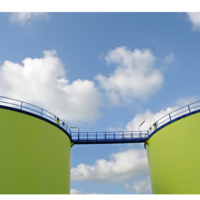
Major organisations operating in the liquid fuels value chain have joined forces to form the Renewable & Low-Carbon Liquid Fuels Platform. These partners are working together to contribute to the decarbonisation of the mobility sector in a sustainable and affordable way. Read more
COCERAL, FEDIOL, FEFAC Position Paper on Due Diligence 26/04/2021
Mandatory Due Diligence as a part of the Smart Mix of EU Measures to tackle Deforestation and Human Rights Issues.
Read the position paper here
EUBA Statement on Revised draft Delegated Act on climate-related objectives 14/04/2021
Despite improvement, more changes are needed to allow European Bioeconomy to be part of the solution towards climate neutrality. The activities of the members of the European Bioeconomy Alliance (EUBA) together represent nearly €2 trillion providing more than 22 million jobs to EU citizens. Our activities are essential to the sustainable production of renewable resources and their conversion into food, feed, fibres, materials, chemicals, pharmaceuticals and bioenergy through efficient processes and/or innovative technologies. Read the full statement here
Biofuels should be part of the solution for the EU transition to carbon neutrality 08/04/2021
EU Biofuels Chain Joint position paper on the revised Sustainable finance draft Delegated Regulation.
EUBA position on the EU Circular Economy Action Plan 03/03/2021
The European Commission's Circular Economy Action Plan sets important ambitions for reducing consumption by making products more renewable, reusable and recyclable throughout their whole lifecycle – ambitions that cannot easily be achieved without taking full advantage of Europe's bioeconomy. In this paper, the European Bioeconomy Alliance (EUBA), which represents a wide variety of primary producers, processors and technology providers, highlights the significance of its sectors in contributing bioeconomy solutions for this essential transition to a circular economy.
Seven steps to curbing deforestation and enhancing forest protection - Looking beyond EU-only solutions to a global issue 19/02/2021
The EU can lead the sustainable transformation of our supply chains towards no-deforestation. If we want producer countries to follow, we need to support them in improving practices instead of only offering criticism and bans.
Read the full COCERAL, FEDIOL, FEFAC op-ed here
Fighting deforestation: we need a framework conducive to changing practices on the ground 15/09/2020
The industry and trade members of COCERAL, FEDIOL and FEFAC share public concern of the incidence of fires on native vegetation, wildlife and on local communities. Fires in the Amazon region are raising particular attention because of their alleged link with land grabbing practices and with deforestation. Read our joint statement here
EU companies struggle to get their supplies in linseeds 07/09/2020
Nutrition factsheet Rapeseed oil 16/06/2020
Rapeseed oil is produced from the seeds of several species of plants of the Brassica family. Rapeseed is a bright-yellow flowering plant, cultivated mainly for its oil-rich seed. The main growing regions are Canada, China, India and the European Union. See full factsheet here
FEDIOL’s General Assembly elects new President 11/06/2020

At its meeting held on Thursday, 11 June 2020 in Brussels, the General Assembly of FEDIOL confirmed the unanimous election of Mr Roger Janson as President of FEDIOL for a two years’ mandate, 2020-2022. Full statement here
COCERAL, FEDIOL, FEFAC joint position on how to accelerate action against deforestation 29/05/2020

In response to the EU’s declared intention to reduce its role in global deforestation by targeting commodities and products entering its market via a set of regulatory and non-regulatory measures, COCERAL, FEDIOL and FEFAC share their views on the best way forward to achieve a sustainable transformation of their supply chains. Read full position here
Farm to Fork & Biodiversity Strategies: ambitious promises that still need to overcome contradictions 20/05/2020
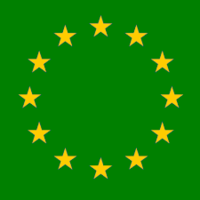
Today marks the publication of two key components of the European Green Deal: the Farm-to-Fork and Biodiversity Strategies. As the EU association representing producers of vegetable oils and protein meals, FEDIOL shares the objective of supporting the transition towards a more sustainable EU food system. At a moment when the COVID crisis has highlighted major strengths, but also certain weaknesses of the agri-food sector, these strategies should help increase resilience to climate change and adaptation to future challenges and help put in place a transformative plan to tackle the biodiversity crisis by protecting and restoring nature. Read our full press release
European Bioeconomy Alliance Welcomes the Comprehensive EU Green Deal Strategy 29/04/2020
The ambitious European Commission strategy to drastically reduce greenhouse gas emissions in the EU and achieve climate neutrality by 2050 has recently been set in motion as the European Green Deal. The European Bioeconomy Alliance (EUBA), representing twelve organisations in various sectors active in the bioeconomy, welcomes such a comprehensive policy tool that should ensure alignment and coherence between the different initiatives that are part of the Deal. Read the full position here
COVID19 impacts on the EU grain trade, oil crushing and farm animal feed sector 09/04/2020
During these times of crisis, COCERAL, FEDIOL, FEFAC, their member associations and individual companies are fully committed to fulfil their core mission: to continuously supply the food and feed chain by ensuring that nutritious and safe products are available at all times to the food and livestock industry. This helps provide access to affordable food to all European citizens and adequate nutrition to animal husbandry --> Joint statement
EU grains, oilseeds and feed value chain partners call on the Commission to take urgent steps to avoid disruption of food and feed supply in Europe 17/03/2020
Given the dramatic consequences of the spread of COVID-19, the priority of the whole food and feed supply chain is obviously to strictly comply with EU and national instructions to prevent further dissemination of the virus among its employees, suppliers and customers. At the same time, we are taking all the actions required to avoid disruptions in the food and feed supply chain, so as to be able to continue supplying farmers, the food industry and feed processors with the agricultural raw materials and ingredients they need. Press release
Joint COCERAL, FEDIOL, FEFAC workshop "Trade impact of pesticides residues" 12/11/2019
Grain traders, crushers and compound feed manufacturers engage in constructive dialogue aimed at mitigating impacts on trade of the ongoing regulatory transition to lower maximum residue levels (MRLs) for pesticides in commodities. Press statement here
"Variability of mineral oil results in foods between laboratories: new insights" 24/10/2019
The variability of mineral oil results observed between different laboratories is an issue faced by different food sectors. Along with other industry players, FEDIOL contributed to a new article which provides a deeper insight on the reliability/reproducibility of the analytical methods used by commercial laboratories offering testing services to determine residues of mineral oil in foods. The article also identifies possible gaps and suggests improvements that may enhance the reliability of the data. This article was published on 22 October 2019 and can be found here
FEDIOL FEFAC COCERAL welcome European Commission Communication on Deforestation 23/07/2019

EU grain and oilseed trade, crushing and feed industry sectors represented by COCERAL, FEDIOL and FEFAC welcome the European Commission Communication on Stepping up EU Action to Protect and Restore the World’s Forests, adopted on 23 July 2019. See full press release here.
FEDIOL press release on EU Communication on deforestation 23/07/2019

Brussels, 23 July 2019 – Today the European Commission released its Communication on Stepping up EU Action to Protect and Restore the World’s Forests, giving a clear signal on the need for all relevant actors to engage in the transformation of their supply chains via active commitment and support. See full press release here.
Nutrition factsheet Coconut oil 19/06/2019
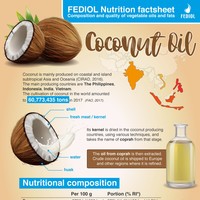
Coconut oil is produced from coprah, the dried kernel of coconuts. Imported into EU from the Philippines, Indonesia, Inda, Vietnam, as crude oil it is refined before use is food and non-food. See full factsheet here.
Nutrition factsheet Maize oil 19/06/2019
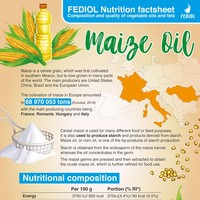
Maize oil is produced from maize germs and a by-products from starch production. Maizeoil is mainly used for food purposes in cold or warm preparations. See full factsheet here
Sustainable sourcing of agricultural products: working together to further improve our supply chain_ FEDIOL Annual Conference 2019 14/06/2019
Brussels, 14 June 2019 – The FEDIOL annual conference on “EU oilseeds processing: reconciling public and private objectives on food safety and sustainability” held today confirmed sustainability as one the key priorities for the vegetable oil and protein meal industry. See press release
RED II delegated regulation on ILUC risk gets officially published 21/05/2019
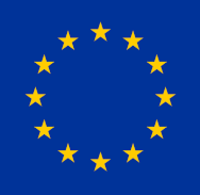
Brussels, 21 May 2019 – In the absence of objections by European Parliament and Council on the proposed text within the given two-month scrutiny period, the European Commission has published today in the Official Journal the Delegated Act on the determination of high indirect land-use change-risk feedstock and the certification of low indirect land-use change-risk biofuels. See press release
UPDATE: The ECJ ruling on mutagenesis requires a change in EU GMO legislation 10/05/2019
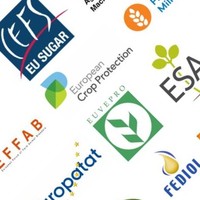
On 23 April, 22 EU food and feed chain organisations jointly signed a letter urging Member States and the EU Commission to ensure EU legislation allows EU operators of the food and feed chain to preserve access to competitive supply of innovative food and feed ingredients. On 09 May, the letter received support from four additional business organisations. In total, 26 organisations are reiterating their concern about the European Court of Justice ruling on case C-528/16.
On 25 July 2018, the European Court of Justice interpreted the provisions of the EU GMO Directive 2001/18 in such a way that products resulting from innovative, targeted mutagenesis methods are regulated under the provisions of the GMO-Directive. This decision triggered strong reactions from many stakeholders and the scientific community, stressing that this would hinder dramatically the delivery of innovative and more sustainable agricultural products produced using new gene editing breeding techniques.
For EU organisations of the food and feed chain including FEDIOL, products that could have been produced by conventional methods and are indistinguishable from conventional ones should not fall under the GMO Directive 2011/18. The legal framework should therefore be amended to reflect that.
Time is running out to accelerate up take of certified sustainable palm oil and bridge the gap from the current 66% to targeted 100% 07/05/2019
At the end of 2018, 66% of the approximately 3.7 million tonnes of palm oil getting into European refining plants of FEDIOL companies, were certified sustainable. This shows a slight increase compared to last year’s levels. See press release and monitoring leaflet
The ECJ ruling on mutagenesis requires a change in EU GMO legislation 24/04/2019

22 EU food and feed chain organisations sent an open letter urging Member States and the EU Commission to ensure EU legislation allows EU operators of the food and feed chain to preserve access to competitive supply of innovative food and feed ingredients.
On 25 July 2018, the European Court of Justice interpreted the provisions of the EU GMO Directive 2001/18 in such a way that products resulting from innovative, targeted mutagenesis methods are regulated under the provisions of the GMO-Directive. This decision triggered strong reactions from many stakeholders and the scientific community, stressing that this would hinder dramatically the delivery of innovative and more sustainable agricultural products produced using new gene editing breeding techniques.
For EU organisations of the food and feed chain including FEDIOL, products that could have been produced by conventional methods and are indistinguishable from conventional ones should not fall under the GMO Directive 2011/18 and this means adapting the legal framework to that extent.
